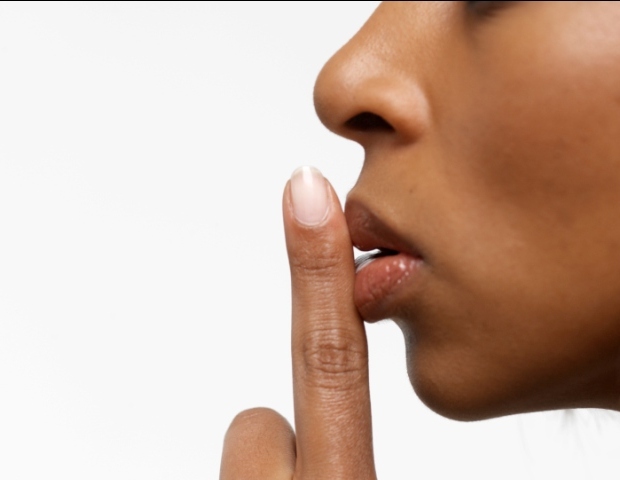 It's often said that silence is golden. Contrasting with the clamour and din of the world we live in, there's a beauty in silence; a special solitude in the space that it gives us.
It's often said that silence is golden. Contrasting with the clamour and din of the world we live in, there's a beauty in silence; a special solitude in the space that it gives us.
Then, there's an aspect of silence that stuns in another way. When the world's noise begs for a voice to respond, that revered solitude festers into neglect and the golden beauty of silence tarnishes into ugliness.
For marginalized people in this city, this country, this world - things aren't just noisy, they're deafening. Individual voices raised in retort have done amazing things, but when voices combine in effort, even more impressive things ensue. That's why for me, at this time, it's distressing to feel the crushing silence emanating from long-standing Black institutions who have failed to add their voice to our current struggles.
This past weekend, I passed on an invitation to one of Toronto's - if not Canada's - premiere Black events. I looked forward to the opportunity to get dolled up and connect with old friends and new people. What I didn't look forward to was the nausea of watching Toronto's mayor grace the event with grandiloquent comments celebrating the same demographic victimized by the carding policy he supported a week prior. The cognitive dissonance is unsurprising, yet it's hard to shake the feelings of frustration and disappointment.
Even more disappointing is the fact that organizations that purport to advocate for Black community/communities and support their advancement have failed to take their place at the current tables of discussion on the issues affecting the people they claim to serve. No representatives at police board meetings. No participation in or organization of town halls. Poor outreach to the community in favour of more insular, self-congratulatory efforts. Refusal to engage in the conversations that community members are asking - no, begging - for. I guess you can chalk some initial silence up to lack of awareness. Then, you can say, "Well, maybe they'll be present at the next meeting/will have a quote in the next round of media coverage/will issue a statement of their own." Then, you wait and wait and grasp at nothing but empty silence and realize that their silence is their statement.
The Star's "Searching for Toronto's next generation of Black leaders" covers a spate of perspectives on issues affecting advocacy and activism in the city. Why do older leaders hesitate to pass the baton on to younger generations? Is there a misunderstanding of new waves of activism? How do we increase community involvement in various initiatives? This article asks questions and attempts to answer them, highlighting some of the very issues that I feel compound on the function of Black organizations in our communities.
Far too many Black organizations uphold narrow paradigms of respectability, putting an asterisk beside the definition of the demographic they represent. Far too many ascribe to the modus operandi of "Just pull yourself up by your bootstraps" without acknowledging that sometimes those very bootstraps are given to us, already frayed and deliberately unable to support our weight. Far too many think that their presence is effort enough, failing to actively engage the individuals and communities around them. Far too many cry that there's no one new to helm the ship when their white-knuckled clutches on power impede their ability to let new blood in. What we need are organizations that understand, as Audre Lorde said, that "the Master's tools will never dismantle the Master's house." We cannot build an empowered Black identity using the sociopolitical tools that were created to work against us. We need organizations that are truly open to new voices and new ways of doing things; ones that are accessible in a myriad of forms; ones that aren't afraid to speak up when and where it matters; ones that don't value photo ops over true progress.
Perhaps some of these organizations are misunderstood. If that's the case, I truly hope that they do the necessary work to make change and align their internal missions with external perception. Maybe a redefinition of who they serve or a revamp of the hows and whys of doing what they do is needed. Additionally, a reminder needs to be given that there isn't much room for ego in community work. All critique and criticism isn't cruel - more often, it's a sign that your community is invested in what you do and wants you to do even better, so disparaging that response isn't always a smart move.
Then again, maybe I'm the one who is looking at this all wrong. Maybe I'm expecting things of people and executives and institutions that they aren't meant to deliver. When it comes to carding or police brutality or fighting for higher minimum wage or support for Black women, maybe I'm waiting for people to speak when they truly have nothing to say. What I do know is this: your silence speaks volumes, and I hear you loud and clear.

